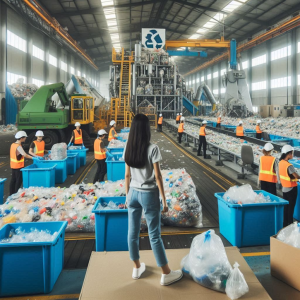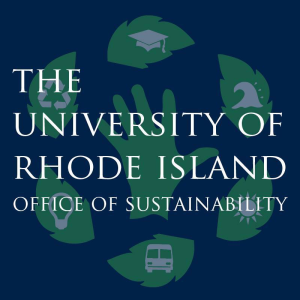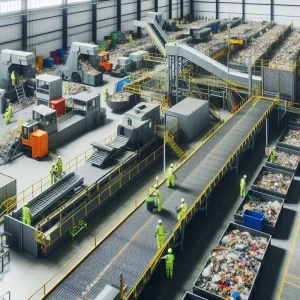
The state of Georgia is making great progress in employing circular economy solutions to tackle environmental issues, promote economic growth and establish strong communities.
This circular economy strives to minimize waste and pollution while ensuring that products, materials, and resources remain in use as long as possible, all the while regenerating natural systems. The state of Georgia has a comprehensive plan that draws on government, private-sector involvement and citizen buy-in to achieve sustainability and resource conservation.
Breaking down the Circular Economy Architecture
Moving away from the traditional linear economic model of “take, make, dispose” has contributed to excessive extraction of resource per year as well as environmental degradation and waste accumulation. On the other hand, a circular economy focuses on:
- Design of waste and pollution is also out.
- Durability, upcycle and recycle of products through reuse
- Maintained circulating materials
- Materials that would otherwise go to waste are reused or repurposed
- Regenerating natural systems
- Organic waste is turned to compost or recycled into nature
These principles have been applied by the government of Georgia in different sectors to mitigate environmental impact and create economic opportunities, as well as for more effective resource management.
Framework for Circular Economy Policy in Georgia
Solid Waste Management Plans
Local governments like Sandy Springs or Atlanta are required by the Georgia Comprehensive Solid Waste Management Act to develop solid waste management plans that emphasize waste reduction, recycling, and resource recovery. The plans promote circular use of materials through recycling programs, composting and reuse of construction and demolition waste.
Recycling Market Development
Georgia is also promoting development of recycling markets. The state is also home to some significant recyclers, including Novelis, the world’s largest aluminum recycler and of Pratt Industries, a leader in paper and cardboard recycling. Georgia aims to keep these recycled materials in circulation and out of reliance from virgin resources by creating a market demand for them.
Composting and organics recycling
With organic waste seen as a low hanging fruit, the state is promoting composting and anaerobic digestion as alternatives to dumpster rental services and landfilling. They convert food scraps and yard waste into compost or renewable energy that can be used as fertilizer, enhancing agricultural productivity while also mitigating landfill methane emissions.
Extended Producer Responsibility (EPR) Programs
Under Georgia’s voluntary EPR approach, manufacturers would be held accountable for the entire lifecycle of their products. Such programs encourage companies to create products that are more easily repaired, reused and recycled.
Green Procurement Policies
The state government embeds circular economy in its procurement by giving preference to recycled products, energy-efficient device & service providers that help avoid waste generation.
Core Focus Industry Applications for Circular Economy
Plastics and Packaging
Plastics is a specific area of work for Georgia’s circular economy aspirations. The state works with industries to minimize the use of single-use plastics and recover recyclable materials. The kind of high-quality material recovery we are striving for is what programs like “Recycle Right Georgia” were designed to deliver by teaching residents how to recycle in their communities.
Companies are also looking to new solutions, such as chemical recycling that converts plastics into their raw materials to create new products of the same quality.
Waste from Construction and Demolition
More recycling by using demolition materials such as concrete, metal and wood is becoming commonplace in Georgia’s construction industry. Recycling centres treat these materials and transform them into aggregates to be used in new construction projects, thereby lessening the need for virgin resources.
Textile Recycling
Textile recycling, initiatives to recycle used fabrics into finished or semi-finished products or raw materials for industries such as automotive making are also expanding in Georgia. Local nonprofits and businesses partner together to collect used clothing and textiles, keeping them out of landfills.
Food Waste and Agriculture
Examples of circular practices regarding agriculture are: incorporating compost built from food waste and organic materials. This also reduces need for chemical fertilisers and improves soil health. Other circular principles are integrated into urban farming projects in Georgia, which use waste resources for food production.
Build partnerships to accelerate the circular economy
Public–private partnership (PPP or P3)
Public–private partnership (PPP or P3)
Georgia builds partnerships to meet circular economy objectives between the government, dumpster rental services, private sector and nonprofits. The Georgia Recycling Coalition, for example, collaborates with industries and communities on waste reduction and recycling efforts.
Learning and Connecting with others
Public awareness plays a vital role for circular economy programs. Georgia provides educational programs statewide teaching the people how to practice sustainability, like recycling, composting and cutting down on consumption.
Innovative Founders and Science
Startup and academia partners promoting advanced recycling technologies and recyclable product designs in Georgia Georgia Tech, for instance, researches circular economy models to develop innovations and solutions for waste elimination.
Challenges and Opportunities in Waste Management
Challenges
- Recycling Stream Contamination: When materials aren’t properly cleaned or they are somehow so bad that they can’t be recycled in the first place, it reduces recycling efficiency.
- Absence of Infrastructure: Many rural areas around the world are unavailable to sophisticated recycling plants and services.
- Reliance on Markets: Recycling profitability is reliant on stable markets for resulting materials, which can fluctuate sharply.
Opportunities
- Integration of Technology: From blockchain to track materials, AI-driven waste sorting systems all across the world
- Policy evolution: Expanding EPR programs, and creating new incentives for businesses transitioning to more circular models can help speed progress along.
- Creating Green Jobs: The circular economy promotes job creation in recycling, remanufacturing, and waste-to-resource industries.
Future Outlook for Junk Disposal in Georgia
Georgia has been bubbling up towards the backdrop of circular economy principles. Through expansion of existing programs, inclusion of new technology and cross-sector collaboration, Georgia has the potential to achieve long-lasting environmental and economic gains. Such initiatives not just reduce waste and save resources but also open doors for a more resilient and sustainable future.




